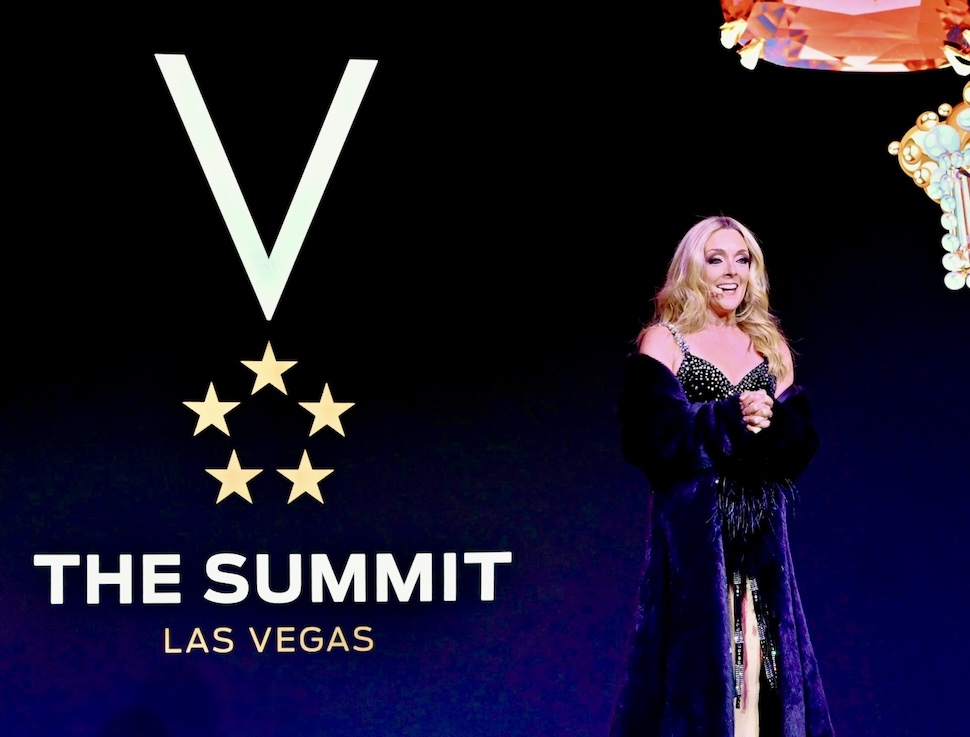

Jane Krakowski has made a career of jumping from TV roles to movie sets to Broadway productions, so having the Tony-winning, Emmy-nominated star of 30 Rock swing and flip her way, Cirque du Soleil-style, through an acrobatic opening act as host of the gala at Forbes Travel Guide’s 2024 Summit wasn’t the biggest challenge of the week in Las Vegas.
That distinction would fall on coordinators asked to make this year’s installment of the hospitality industry’s biggest event even more spectacular than last year’s post-COVID celebration.
“We have very experienced producers and planners on our team that bring years of experience to the table,” said Lisa Faust, chief experience officer with Creative Experience Group, of the Summit, which took place at Resorts World Las Vegas February 27 through March 1. “Each planner or producer has a specific lane they stay in, from registration, travel, production, speaker prep, catering, design, talent, website and communications. It has to be that way. With an event of this size and scale, I must trust my team to get the work done.”
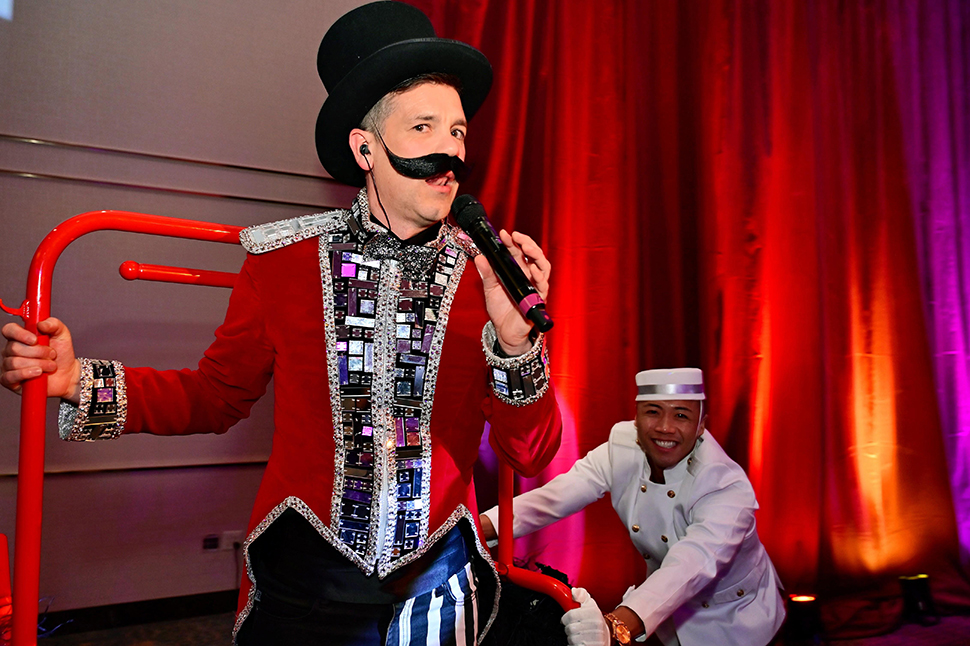
When you looked across the sea of smiling faces and picture-snapping phones in the circus-themed ballroom, it’s safe to say Faust’s crew was successful. Hundreds of hoteliers, business executives, travel advisors and other leading luxury travel professionals attended the Summit from 85-plus countries. And just about every one of them laughed as Krakowski and conference emcee Anthony Veneziale, a Tony Award winner in his own right, exchanged zingers on stage.
But, of course, the biggest stars of the Summit were the outstanding hotels, restaurants, spas and cruise liners. FTG mixed award presentations with engaging talks over two days from thought leaders in hospitality, technology, the investment sector, the culinary arts and other verticals.
This year’s unofficial theme was wellness — be it physical or financial. Globally respected wellness strategist Mia Kyricos kicked things off by passionately speaking on the healthy marriage of the two. Where there was once a time when wellness advocates had to fight to be heard at the noisy hospitality table, Kyricos says the market is now a thriving $5.6 trillion economy, with wellness real estate and wellness tourism accounting for more than $1 trillion of that figure.
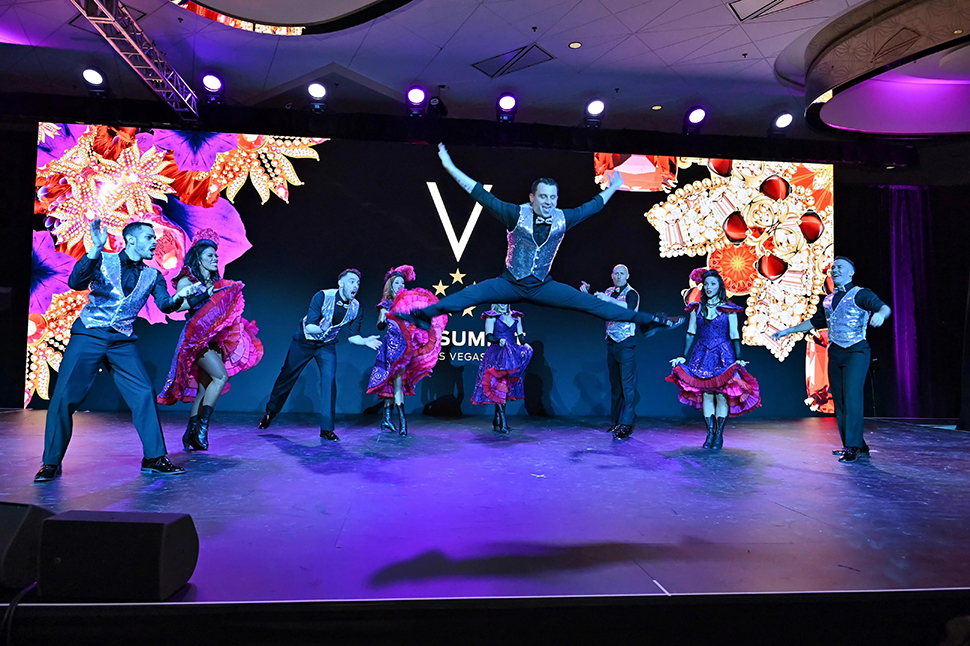
Daniel Langer, one of the premier luxury strategists and brand equity experts, asked hoteliers in the room to hold up a symbolic mirror and ask themselves if their guests were being prioritized or simply being present at their property. Langer added that if it was the latter, there’s a good chance patrons checked out with an ugly “F” word in mind to define their stay: “fine.” To earn repeat business, fine, ordinary experiences will no longer cut it.
If there’s one word to surmise the chat about workplace wellness moderated by Dr. Henry Ting, SVP and chief health officer of Delta, it would be “fulfillment.” All three panelists (Kenneth Fasola, president of the Centene Corporation; Dr. Michael Lappi, chief medical officer of Corning Incorporated; and Dr. Pascal Goldschmidt, chief medical officer of Lennar Corporation) spoke in their own terms on how a fulfilled staff goes a long way to ensuring happy customers. “Health leads to wealth much more than wealth leads to health,” Goldschmidt said.
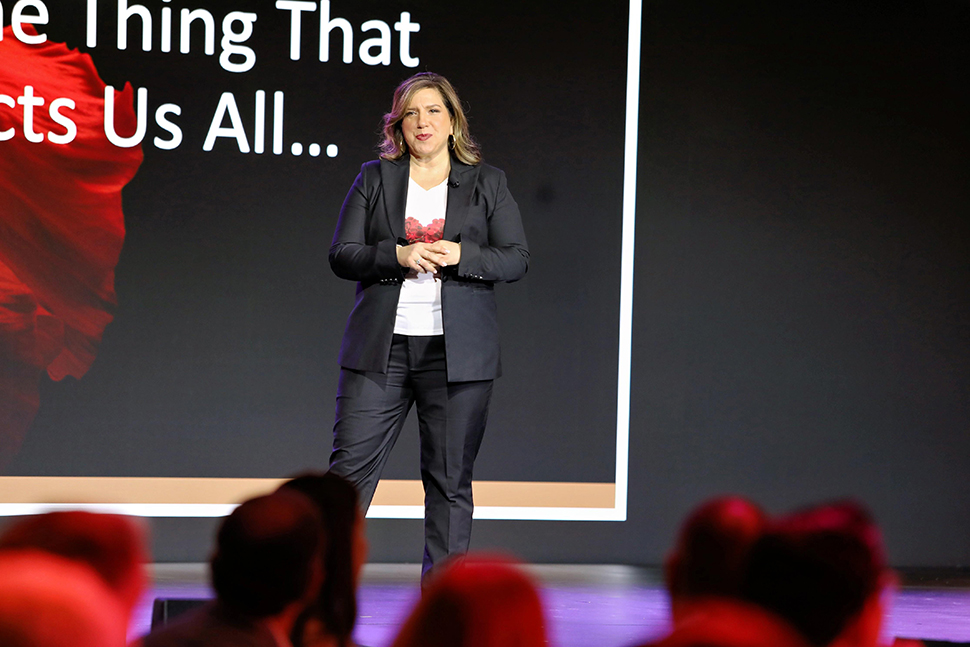
Leading off the next day’s busy schedule was a candid CEO chat between Forbes Travel Guide’s Hermann Elger and Delta Air Lines’ Ed Bastian. During the conversation, Bastian echoed prior discussions about employee care leading to better customer service. Something must be working as Delta, the biggest airline in the world, flew 200 million people in 2023. But Bastian didn’t shy from one particularly turbulent topic — changes to his company’s SkyMiles program. He said frequent flyers walked up to him and said, “I can’t believe you’re doing this to me.” Bastian acknowledged missteps with the rollout and said his team was actively working to find better solutions. Club lounges coming to Boston, Los Angeles and JFK are a start.
Next, the spotlight fell on Forbes Travel Guide’s charitable partner Rally Foundation for Childhood Cancer Research, a nonprofit working to raise funds for research to find better treatments for young patients. The organization’s founder and CEO, Dean Crowe, revealed that cancer was the No. 1 killer of children in America yet only 4 percent of cancer research dollars was going to kids. Crowe said Rally had raised more than $29 million and helped nearly 1,600 families. Still, the most promising figure: three Rally-assisted patients had babies of their own last year.
Robert Webster, president of CBRE Hotels Institutional Group, and John Harper, CBRE’s senior vice president, offered sobering statistics on the state of hotel real estate. “You would think that investors would want to invest in hotels, but it’s been the complete opposite,” said Webster, referencing a chart where transactions were down 50 percent in 2023. But with likely interest rate cuts and other factors, he said properties should look more enticing in 2024’s second half.
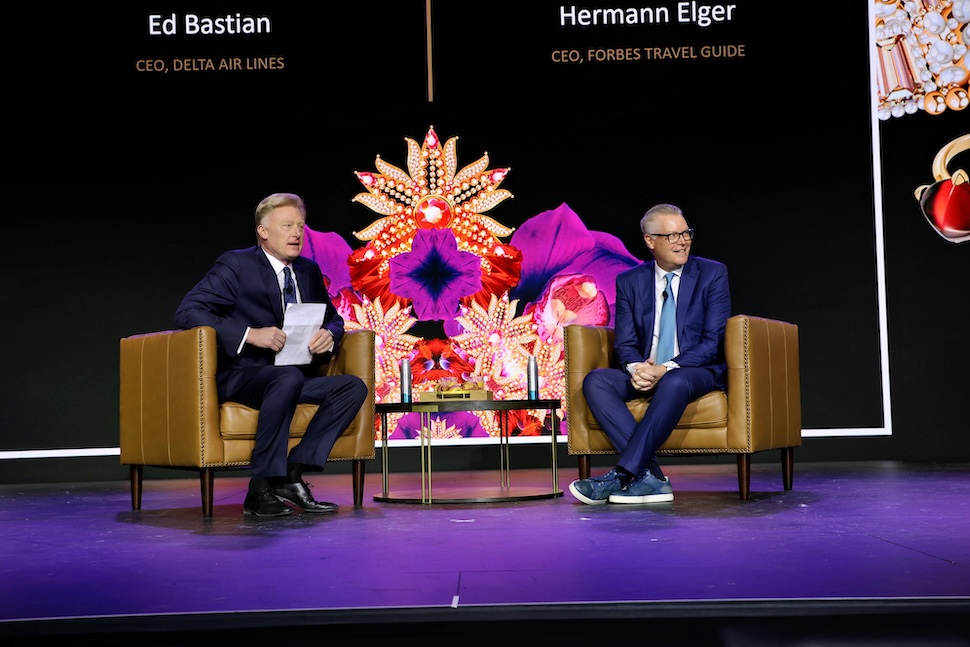
Evolving demographics were a theme of the presentation from Rafat Ali, founder and CEO of Skift. Ali said that while the number of European travelers was trending down, there will be a rise in global activity from Africa, where one-fourth of the world population will live in 25 years. And there’s such a large untapped group of Indian travelers with its eyes on America the country is being tabbed “the next China.” Keeping with trends, Ali suggested that single female travelers, solo adventurists and groups seeking luxury experiences were sectors that will startle the market.
Summit attendees got copies of New York Times best-seller Chip Conley’s seventh book, Learning to Love Mid-Life: 12 Reasons Why Life Gets Better with Age, upon check-in. During his keynote speech, the Modern Elder Academy founder reiterated the importance of hotels welcoming aging travelers. “People wanting to reimagine and repurpose themselves in their 40s, 50s and 60s, and do it as part of a travel experience, is a long-term trend globally,” he said.
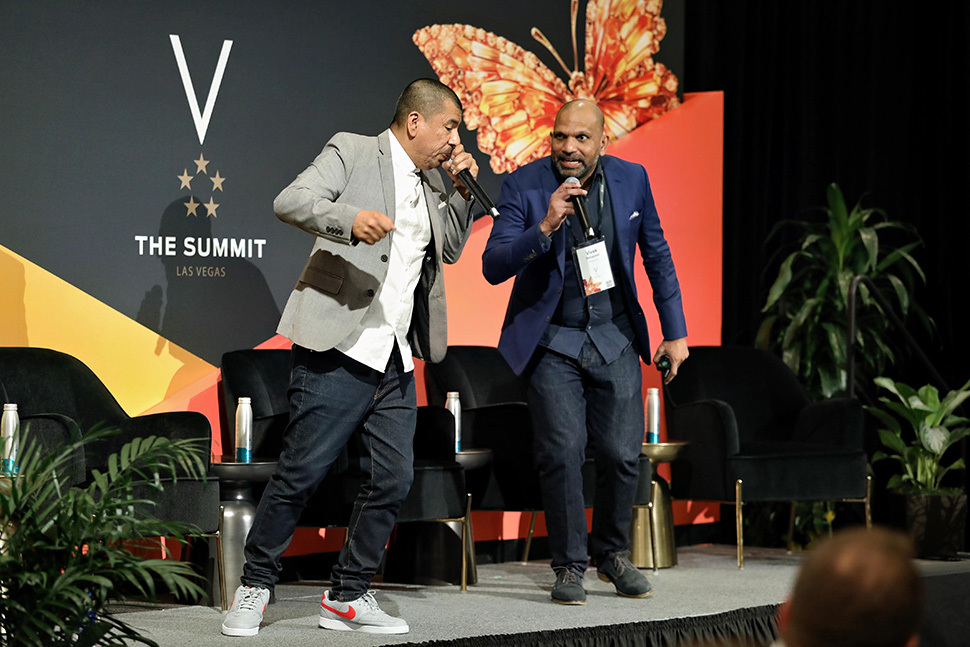
Along with these well-attended keynotes, the Summit held a series of Discovery Sessions, smaller breakout discussions. “The Role of AI in Travel & Hospitality Innovation” tackled a timely topic. Though artificial intelligence encroachment into the hotel industry is inevitable, the human component — like a housekeeper reassuring nervous panelist Lesly Simmons, head of Amazon’s Community Innovation, that she looks great before going on stage — can never be replaced, she said. “Women in Leadership — Cultivating the Next Generation of Hoteliers” made a financial case for diversity. “Companies in the top 25% for ethnic and cultural diversity were 36% more profitable,” said Emily Kanders-Goldfisher, founder and editor-in-chief of hertelier. “When women are well-represented in the C suite, profits can be almost 50% higher.”
The master improvisers of Freestyle+ led “Bring the Energy — Exploring Improvisation in Hospitality,” which had attendees beatboxing and doing improv. While it was fun, the practices are rooted in science. “When you get into that flow state, you are able to access your background, your memories, you’re able to be authentic and confidence level goes up, and at the same time that judgment voice gets muted,” said Vivek Venugopal, VP of sales for Freestyle+. Bring that play into the workplace so that people can start to establish meaningful connections not just with colleagues but with guests, he said.
In “Prospecting on Purpose — Embracing Authenticity in Luxury,” consultant Sara Murray insisted that one of the biggest problems in business is people not listening. She says we forget names instantly because we’re so focused on whatever it is we’re going to say next in the conversation.
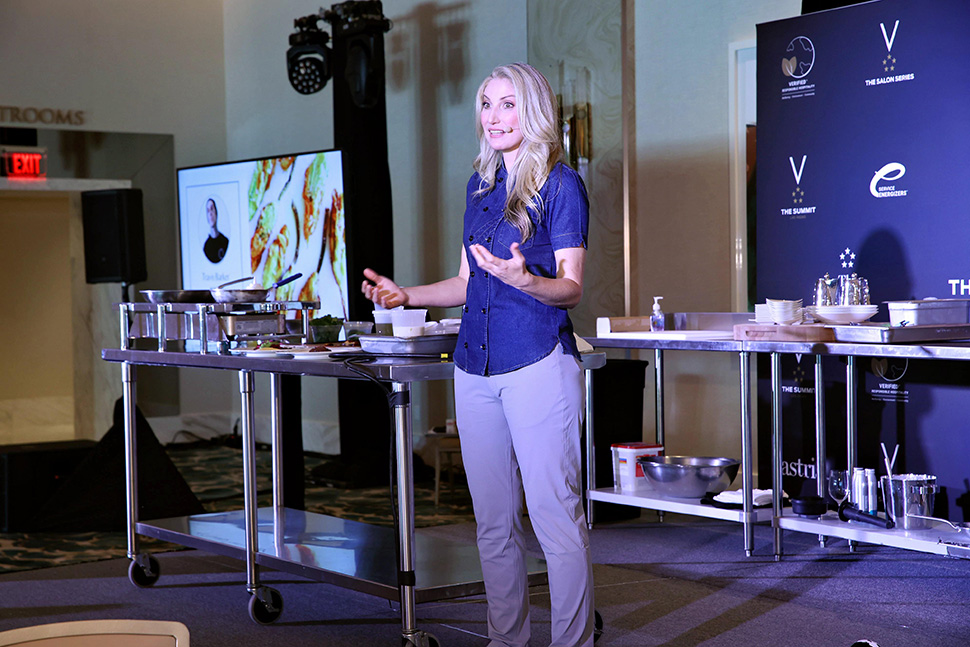
Tapping into the wellness wave, “The Rise of Plant-Based Travel – Exploring Sustainable Culinary Experiences” featured vegan chef Leslie Durso of Four Seasons Resort Punta Mita, Mexico and Naviva, A Four Seasons Resort, cooking and dishing on sustainable, healthy lifestyles. “With more than 25,000 plants out there,” Durso says there’s no excuse for high-end hotels not having more plant-based options on their restaurant menus.
“Maintaining Balance – A Traveler’s Guide to Health, Longevity and Wellbeing” was a Frette-sponsored session for people seeking ways to stay healthy while on the road. With TV host Jeannette Ceja as the moderator, Frette CEO Filippo Arnaboldi, Modern Elder Academy’s Kari Cardinale and Fairmont Grand Del Mar’s Kyra Johnson Bradley spoke on getting a good night’s rest and eating better food. “We want our health span to match our lifespan,” Bradley said, but if hotel minibars and children’s menus are full of junk foods, luxury hotels are just as negligent as fast-food restaurants.
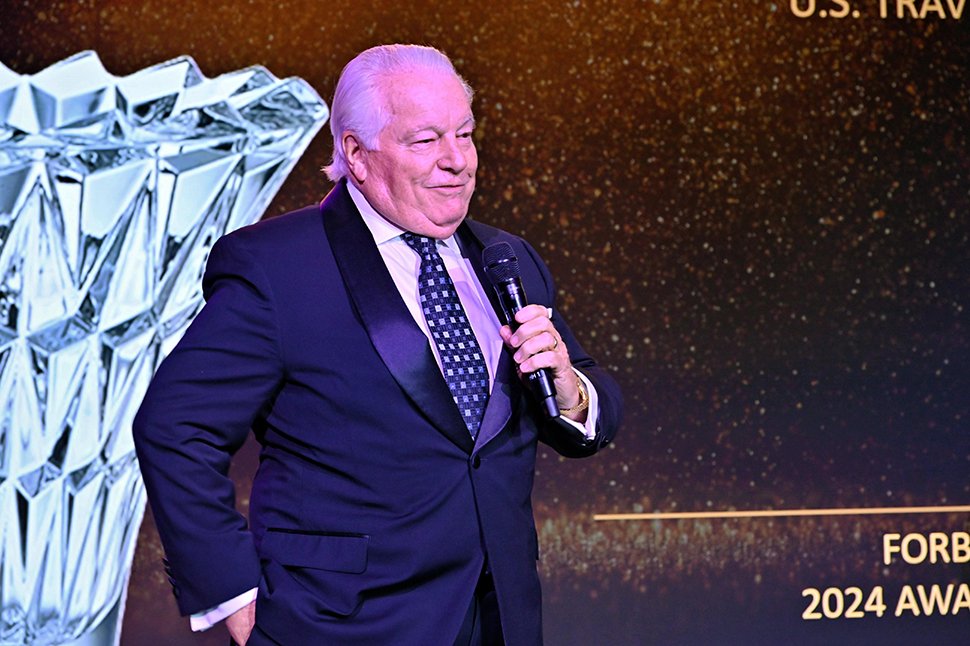
In between Summit panels and keynotes, FTG gave out several awards. Industry icon Roger Dow, the former president and CEO of the U.S. Travel Association, won the Forbes Travel Guide Award of Excellence by Baccarat. He spent 17 years with the organization, advocating for the travel industry and raising its profile in D.C. Before joining U.S. Travel in 2005, Dow spent 34 years at Marriott International, where he served as senior vice president of global and field sales and developed the first hotel loyalty program.
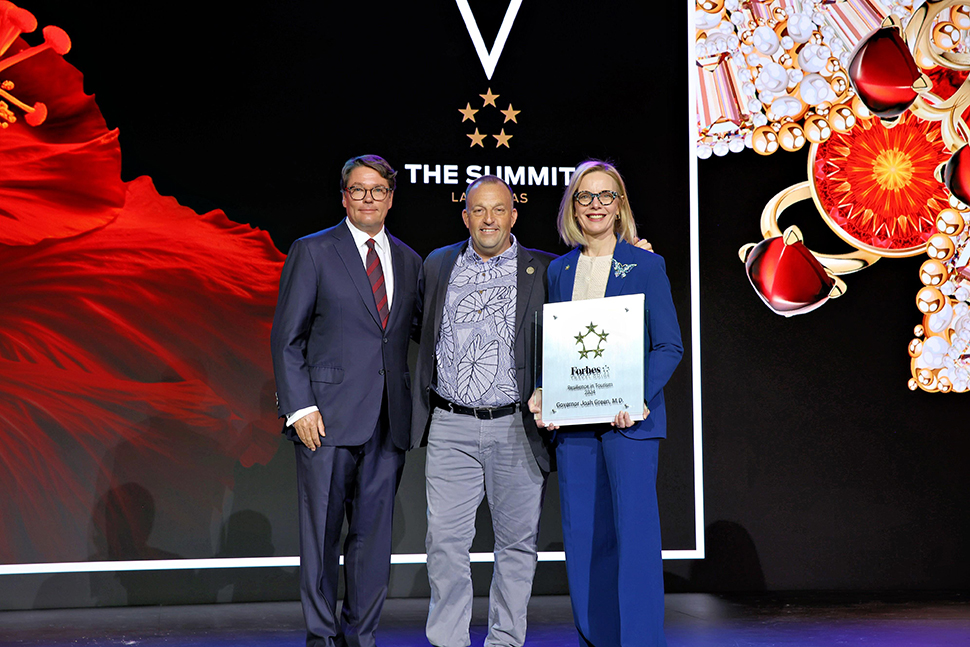
The second annual Resilience in Tourism award went to Hawaii Gov. Josh Green, who demonstrated strong leadership after the tragic wildfires in Maui last summer. He worked tirelessly to help residents adapt to the challenges. Green, a physician, also helped Hawaii through other turbulent times — under his guidance, the state had the nation’s lowest COVID-19 fatality rate.
A new award was announced at this year’s Summit: Best Opening. The winner, Atlantis The Royal in Dubai, was chosen by FTG’s readers and followers for its splashy 2023 debut. The new Five-Star hotel garnered attention for celebrating its opening with a private concert featuring Beyoncé, its avant-garde block architecture, its impressive lineup of celebrity-chef-helmed restaurants and its over-the-top luxurious accommodations.
